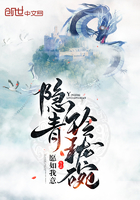The rest of the crowd had, like ourselves, been drawn thither by curiosity, and were asking what was going on. " Murder is abroad," was the answer; "several people have been killed in the environs, and the patrol has been fired on." While this questioning was going on the noise continued to increase. As I had really no business to be on a spot where such things were going on, and feeling that my place was at my wife's side, to reassure her for the present and to watch over her should the rioters come our way, I said good-bye to the captain, who went on to the barracks, and took the road back to the suburb in which I lived.
I was not more than fifty steps from our house when I heard loud talking behind me, and, turning, saw gun barrels glittering in the moonlight. As the speakers seemed to be rapidly approaching me, I kept close in the shadow of the houses till I reached my own door, which I laid softly to behind me, leaving myself a chink by which I could peep out and watch the movements of the group which was drawing near. Suddenly I felt something touch my hand; it was a great Corsican dog, which was turned loose at night, and was so fierce that it was a great protection to our house. I felt glad to have it at my side, for in case of a struggle it would be no despicable ally.
Those approaching turned out to be three armed men leading a fourth, disarmed and a prisoner. They all stopped just opposite my door, which I gently closed and locked, but as I still wished to see what they were about, I slipped into the garden, which lay towards the street, still followed by my dog. Contrary to his habit, and as if he understood the danger, he gave a low whine instead of his usual savage growl. I climbed into a fig tree the branches of which overhung the street, and, hidden by the leaves, and resting my hands on the top of the wall, I leaned far enough forward to see what the men were about.
They were still on the same spot, but there was a change in their positions. The prisoner was now kneeling with clasped hands before the cut-throats, begging for his life for the sake of his wife and children, in heartrending accents, to which his executioners replied in mocking tones, "We have got you at last into our hands, have we?
You dog of a Bonapartist, why do you not call on your emperor to come and help you out of this scrape?" The unfortunate man's entreaties became more pitiful and their mocking replies more pitiless. They levelled their muskets at him several times, and then lowered them, saying; "Devil take it, we won't shoot yet; let us give him time to see death coming," till at last the poor wretch, seeing there was no hope of mercy, begged to be put out of his misery.
Drops of sweat stood on my forehead. I felt my pockets to see if I had nothing on me which I could use as a weapon, but I had not even a knife. I looked at my dog; he was lying flat at the foot of the tree, and appeared to be a prey to the most abject terror. The prisoner continued his supplications, and the assassins their threats and mockery. I climbed quietly down out of the fig tree, intending to fetch my pistols. My dog followed me with his eyes, which seemed to be the only living things about him. Just as my foot touched the ground a double report rang out, and my dog gave a plaintive and prolonged howl. Feeling that all was over, and that no weapons could be of any use, I climbed up again into my perch and looked out. The poor wretch was lying face downwards writhing in his blood; the assassins were reloading their muskets as they walked away.
Being anxious to see if it was too late to help the man whom I had not been able to save, I went out into the street and bent over him.
He was bloody, disfigured, dying, but was yet alive, uttering dismal groans. I tried to lift him up, but soon saw that the wounds which he had received from bullets fired at close range were both mortal, one being in the head, and the other in the loins. Just then a patrol, of the National Guard turned round the corner of the street.
This, instead of being a relief, awoke me to a sense of my danger, and feeling I could do nothing for the wounded man, for the death rattle had already begun, I entered my house, half shut the door, and listened.
"Qui vive?" asked the corporal.
"Idiot!" said someone else, "to ask ' Qui vive ?' of a dead man!"
"He is not dead," said a third voice; "listen to him singing"; and indeed the poor fellow in his agony was giving utterance to dreadful groans.
"Someone has tickled him well," said a fourth, "but what does it matter? We had better finish the job."
Five or six musket shots followed, and the groans ceased.
The name of the man who had just expired was Louis Lichaire; it was not against him, but against his nephew, that the assassins had had a grudge, but finding the nephew out when they burst into the house, and a victim being indispensable, they had torn the uncle from the arms of his wife, and, dragging him towards the citadel, had killed him as I have just related.
Very early next morning I sent to three commissioners of police, one after the other, for permission to have the corpse carried to the hospital, but these gentlemen were either not up or had already gone out, so that it was not until eleven o'clock and after repeated applications that they condescended to give me the needed authorisation.
Thanks to this delay, the whole town came to see the body of the unfortunate man. Indeed, the day which followed a massacre was always kept as a holiday, everyone leaving his work undone and coming out to stare at the slaughtered victims. In this case, a man wishing to amuse the crowd took his pipe out of his mouth and put it between the teeth of the corpse--a joke which had a marvellous success, those present shrieking with laughter.
Many murders had been committed during the night; the companies had scoured the streets singing some doggerel, which one of the bloody wretches, being in poetic vein, had composed, the chorus of which was--, "Our work's well done, We spare none!"

